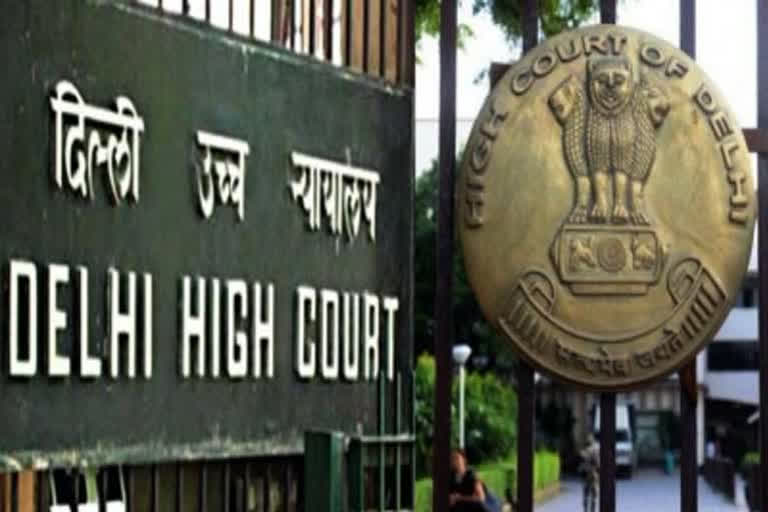New Delhi: The Delhi High Court on Wednesday sought a response from the Centre on a plea challenging the newly enforced Information Technology Rules, 2021 which says that requirements of placing restrictions on freedom of speech and expression are not met and are therefore unconstitutional and should be struck down accordingly.
The Plea seeks direction to the Central government to hold that the grounds of defamation and invasion of another's privacy is libellous as the manner in which rule (3)(1)(b)(ii) of the Information Technology (Intermediary Guidelines and Digital Media Ethics Code) Rules, 2021 is laid out does not meet the requirements of placing restrictions on freedom of speech and expression and therefore are unconstitutional to be either struck down or read down on that basis as is considered appropriate.
The Bench of Justice DN Patel and Justice Jasmeet Singh issued notice to the Union of India and other concern ministries and slated the matter for further hearing on April 16.
Also read: Govt blocked over 9,800 websites, social media handles last year
The Information Technology (Intermediary Guidelines and Digital Media Ethics Code) Rules, 2021 come into force on the date of their publication in the Official Gazette on February 25. The Petitioner, Sanjay Singh, a practising lawyer, through the plea sought a direction to hold that the grounds of unity, integrity, defence, security or sovereignty of India, friendly relations with foreign states, public order, preventing investigation of any offence, insulting other nations as the newly enforces rules do not meet the requirements of placing restrictions on freedom of speech and expression.
According to the plea, the intermediary is brought under tremendous pressure to remove content that purportedly does not comply with the rules and to immediately block access to the user on its own. Otherwise, when it receives directions from a government agency or a competent court regarding any information on the purported ground of it being unlawful, the intermediary has to remove such content or block access to it within 36 (thirty-six) hours or face punishment upto seven years of imprisonment.
The plea also states that under the threat of being blocked access to or having the content removed, a user such as a petitioner would be hesitant to post even content that is otherwise fully permissible in relation to the ground given.
The plea further mentioned that by laying down the grounds in a blanket manner without clarifying what can be permissible to be posted in relation to such ground or what would be clearly unlawful in relation to such ground, and by the intermediary already being under severe pressure to remove or block access to when asked even by a government agency, the result is that a more than serious risk is faced by the user of even lawful content in relation to grounds given under the rules being removed or access to the intermediary platform being blocked even when the content posted otherwise is fully permissible.
Also read: Parliamentary panel questions legality of new guidelines for OTT, social media platforms
It further sought a direction to hold that the grounds of sovereignty and integrity of India, the security of the state, friendly relations with foreign states, public order, decency or morality, in relation to contempt of court, defamation as in the manner laid down in rule 3(1)(d) of the Information Technology (Intermediary Guidelines and Digital Media Ethics Code) Rules, 2021 do not meet the requirements of placing restrictions on freedom of speech and expression.
ANI



